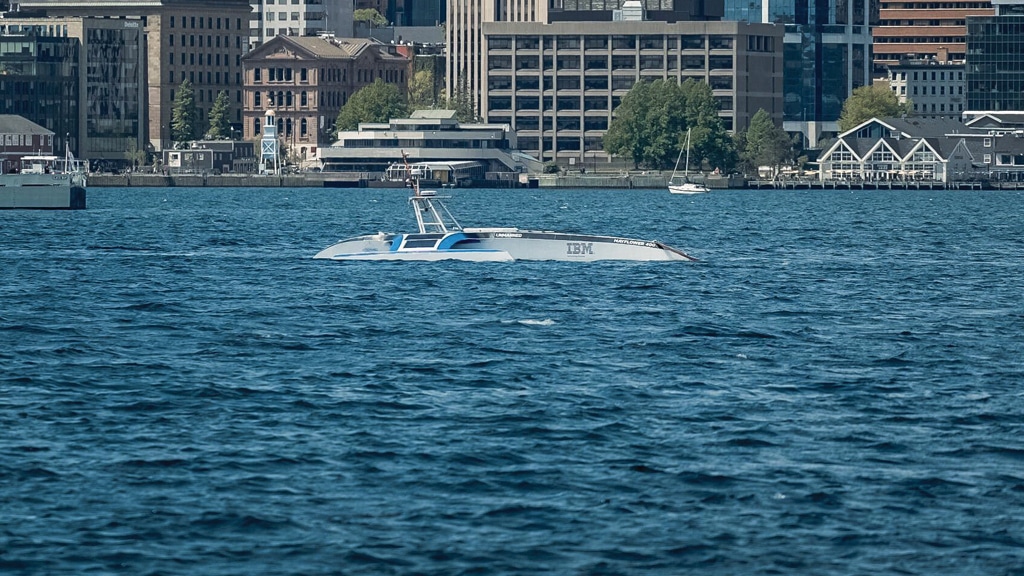The Mayflower Autonomous Ship (MAS) completed an historic transatlantic voyage from Plymouth, UK to its North American arrival in Halifax, Nova Scotia on June 5.
The ship had no human captain or crew onboard and is the first self-directed autonomous ship to traverse the Atlantic Ocean.
Marine research non-profit ProMare along with IBM designed and built the ship. IBM took the role of lead technology and science partner, using their automation, AI and edge computing technologies to power the ship’s Artificial Intelligence (AI) Captain. That technology allowed the AI Caption to “guide the vessel and make real-time decisions while at sea,” IBM says.
Six AI-powered cameras, 30 sensors and 15 Edge devices, gave input which was then turned into actionable recommendations for the AI Captain to interpret and analyze, “making it possible for the AI Captain to adhere to maritime law while making crucial split-second decisions, like rerouting itself around hazards or marine animals, all without human interaction or intervention,”
IBM says.Rob High, IBM Fellow, VP & CTO, Networking & Edge Computing says the Mayflower Autonomous Ship’s challenges – saving time and costs, making trustworthy predictions, and solving complex data problems – are not unique. He stressed that the MAS represents “how technology like AI-powered automation can take intelligent data and make it actionable to make informed business decisions, in any industry.”
